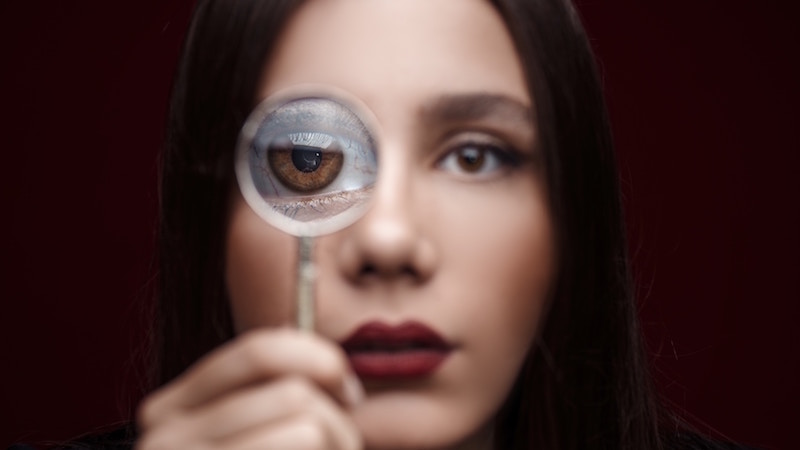How to develop your ‘inner observer’
- 28 October 2018
- Posted by: Michael H Hallett
- Category: How-to & step-by-step ,

By definition, unconscious shame is invisible. The first step towards releasing it is developing the capacity to observe it—awakening our inner Observer, sometimes also known as our inner Witness.
What, or who, is our inner Observer?
Our Observer is that part of ourselves that stands aside from the tide of thoughts, feelings and sensations that swirls through us in every moment and observes them from a place of neutral detachment.
Drama
Many people have little or no ability to observe and reflect on their own thoughts, feelings and actions after an event, let alone as they occur. We are often too immersed in the huge amounts of sense data we’re receiving to be capable of detached observation.
Watch a crowd at a sports game and you’ll see what I mean. They’re all swept up in the visceral excitement of the game, the rollercoaster of winning and losing.
They may support either team, but what they’re really experiencing is the thrill of the game’s drama as one side of fans or the other feels the highs and lows of going ahead or falling behind.
How much self-observation is going on here? None. Throw in huge amounts of noise, food and alcohol and you can see that even if one did want to engage in self-reflection, this is a hard time to do it.
Yet even in the intimate surroundings of a heart-to-heart talk we struggle to observe ourselves. We’re caught in a similar dynamic to the sports game—except that instead of counting goals or points the currency is emotional gains and losses within a relationship.
The discussion may get pretty heated. The more heated it gets, the more is at stake in the relationship, the more the ability for detached observation disappears in the rising emotional heat of the discussion > argument > breakup > makeup loop.
It’s the same when we’re caught in the cycle of a shame-based issue like porn addiction or self-harm. Desperate for emotional release, we go ‘down the funnel’. Our consciousness takes a back seat and our unconscious, addictive behaviour rules.
How much self-observation is happening here? Zilch.
“Shambles”
When we tire of these games, of endless circular arguments, the offended pride, the fake rationalisations, the unnecessary fallouts, the hamster wheel of addiction, the sheer emotional irresponsibility of it all, it’s time to develop our inner Observer.
“When our personal worlds are rediscovered… we discover first a shambles… genitals dissociated from heart; heart severed from head; head dissociated from genitals.”
— R.D. Laing
But be warned: your Observer will generally show you things about yourself that you don’t want to see. Psychologist R.D. Laing notes that as we gain perception of our inner landscape we find nothing less than a “shambles”—the result of 6,000 years of patriarchy.
Responsibility
What our Observer reveals requires us to take responsibility—often painfully—for the hurt places within ourselves that we mistakenly project onto (i.e. blame on) others.
Developing our Observer self is simple in theory but challenging in practice. It starts by recognising whenever we have an experience of life—any experience—that isn’t emotionally satisfying. Then we take responsibility for that less-than-satisfactory moment.
By taking responsibility, I don’t mean accepting the blame.
Acceptance
You can’t develop inner detachment and observation as well as playing the ‘blame game’ of finding someone (ourselves or others) to pin your unhappy moments on.
That’s because blaming someone is a polarised action (good/bad) while observing is a neutral action. There’s a fundamental clash of psychological paradigms here—you must choose one or the other.
To change your negative thoughts, feelings, or behaviours you must accept that something in you either acted or reacted to cause that unhappy moment.
“Your vision will become clear only when you can look into your own heart. Who looks outside, dreams; who looks inside, awakens.”
— Carl Jung
By accepting responsibility, you cease being the victim of others’ actions or of your own unconscious demons. You shift from a helpless mentality to a proactive mindset where you seek out the necessary solutions.
I give a specific technique for developing the inner Observer in How to surf the wave between conscious and unconscious behaviour.
Photo by Mohammad Metri on Unsplash
